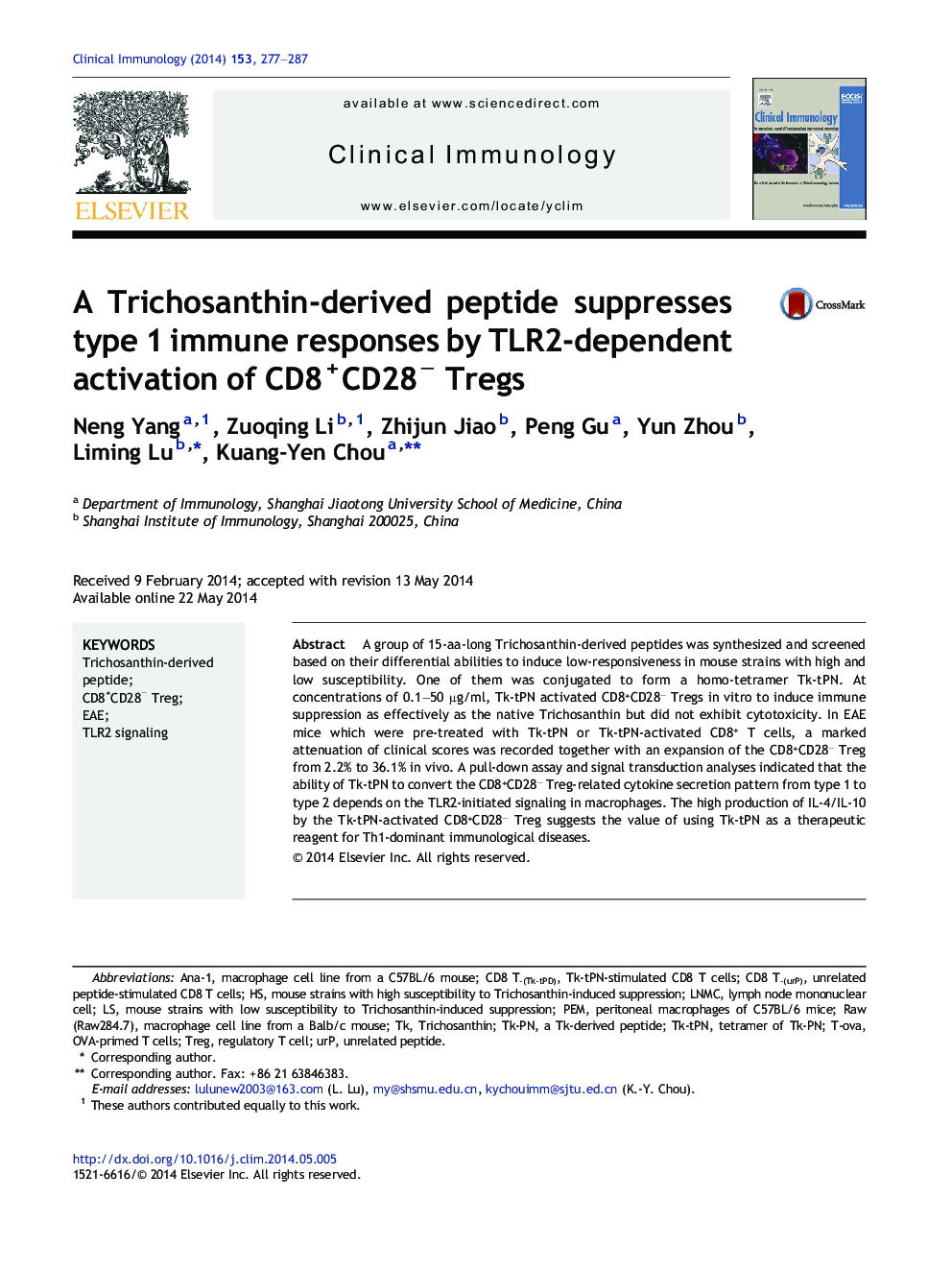| Article ID | Journal | Published Year | Pages | File Type |
|---|---|---|---|---|
| 3256846 | Clinical Immunology | 2014 | 11 Pages |
•Tk-tPN, a Tk-derived peptide, was sifted to show non-toxic suppressive activity.•Tk-tPN selectively expands CD8+CD28− Treg subset to convert type 1 response to type 2.•Tk-tPN and Tk-tPN-stimulated CD8+ T cells show therapeutic effects on autoimmune EAE.•TLR2-signal pathway is involved in the CD8+CD28− Treg-related IL-4/IL-10 production.
A group of 15-aa-long Trichosanthin-derived peptides was synthesized and screened based on their differential abilities to induce low-responsiveness in mouse strains with high and low susceptibility. One of them was conjugated to form a homo-tetramer Tk-tPN. At concentrations of 0.1–50 μg/ml, Tk-tPN activated CD8+CD28− Tregs in vitro to induce immune suppression as effectively as the native Trichosanthin but did not exhibit cytotoxicity. In EAE mice which were pre-treated with Tk-tPN or Tk-tPN-activated CD8+ T cells, a marked attenuation of clinical scores was recorded together with an expansion of the CD8+CD28− Treg from 2.2% to 36.1% in vivo. A pull-down assay and signal transduction analyses indicated that the ability of Tk-tPN to convert the CD8+CD28− Treg-related cytokine secretion pattern from type 1 to type 2 depends on the TLR2-initiated signaling in macrophages. The high production of IL-4/IL-10 by the Tk-tPN-activated CD8+CD28− Treg suggests the value of using Tk-tPN as a therapeutic reagent for Th1-dominant immunological diseases.
